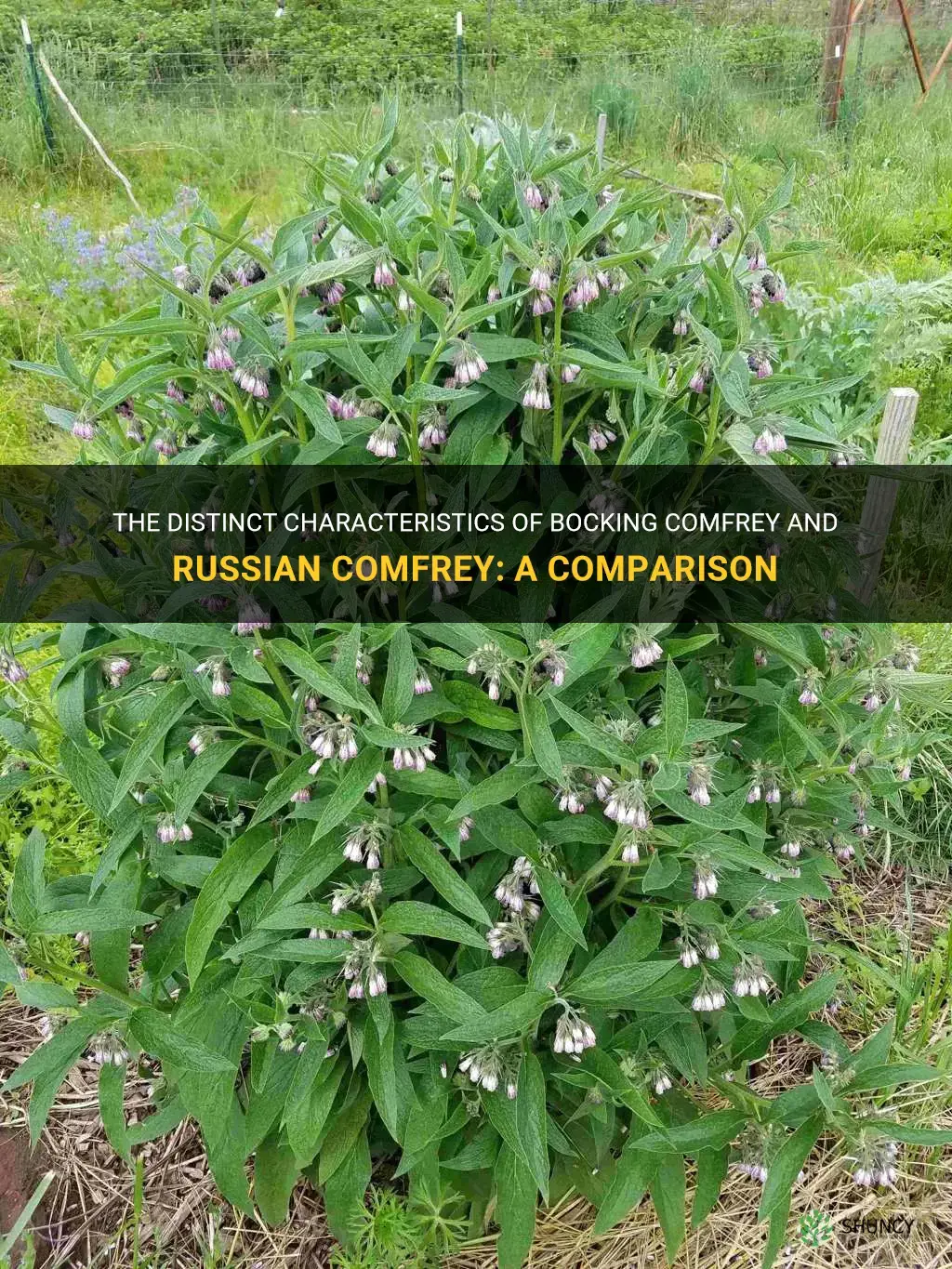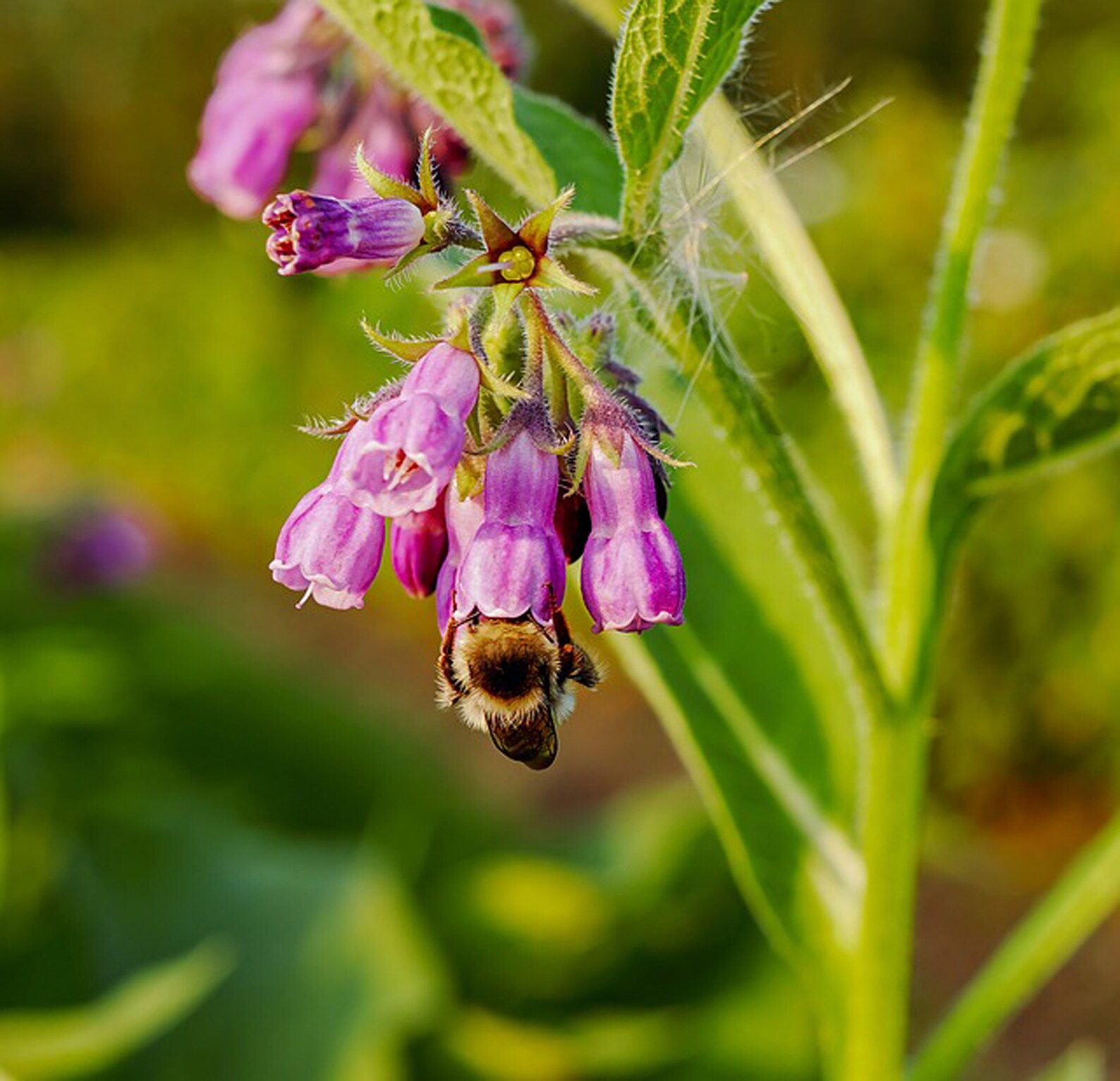Harness the Power of Russian Comfrey Bocking 14: Enhance Your Garden and Well-being!
Are you seeking natural remedies to enhance your garden and alleviate discomforts? Look no further than Russian Comfrey Bocking 14, a remarkable plant renowned for its therapeutic properties.
Russian Comfrey Bocking 14: A Natural Healing Elixir
Russian Comfrey Bocking 14 is a perennial herb that boasts a rich history of medicinal use. Its leaves and roots contain a potent combination of allantoin, rosmarinic acid, and other active compounds that have been found to:

The Distinct Characteristics Of Bocking Comfrey And Russian Comfrey: A – Source shuncy.com
– Reduce inflammation and pain
– Promote wound healing
– Enhance bone and joint health
– Support digestive and urinary systems
Personal Experience with Russian Comfrey Bocking 14
I have personally witnessed the extraordinary healing properties of Russian Comfrey Bocking 14. A year ago, I suffered a nasty cut on my leg that refused to heal. Desperate, I applied a compress made from fresh Comfrey leaves to the wound. To my amazement, the pain subsided almost instantly, and the cut began to heal rapidly. Within days, the wound had completely disappeared, leaving no trace.
Unveiling the History and Myth of Russian Comfrey Bocking 14
Russian Comfrey Bocking 14, also known as “knitbone,” has been revered for centuries in traditional herbal medicine. According to ancient legends, its name originated from the belief that it could mend broken bones. While this claim may be anecdotal, modern research has validated its effectiveness in promoting bone health.

All Purpose Piñon Salve Ingredients — Mom’s Stuff – Source www.momsstuffsalve.com
The Hidden Secrets of Russian Comfrey Bocking 14
Beyond its medicinal properties, Russian Comfrey Bocking 14 is also a valuable addition to any garden. Its deep roots help to improve soil structure, and its large leaves provide ample shade for other plants. Additionally, it attracts pollinators, making it an ideal companion for vegetable gardens.
Recommendations for Using Russian Comfrey Bocking 14
To harness the benefits of Russian Comfrey Bocking 14, you can:
– Make a comfrey salve by combining fresh or dried leaves with a base oil like olive oil or coconut oil.
– Prepare a comfrey tea by steeping dried leaves in hot water.
– Apply fresh comfrey leaves directly to wounds, burns, or bruises.

Comfrey, Russian – Organic Medicinal Live Plants for Sale – Crimson – Source crimsonsage.com
Russian Comfrey Bocking 14: A Multifaceted Herb
Russian Comfrey Bocking 14 is a versatile herb that offers a wide range of medicinal and gardening benefits. Its ability to reduce inflammation, promote healing, and enhance overall well-being makes it an essential addition to any natural home remedy kit.
Tips for Growing Russian Comfrey Bocking 14
Growing Russian Comfrey Bocking 14 is relatively easy. It prefers well-drained soil and full sun to partial shade. Avoid overwatering, as this can lead to root rot.
To propagate Russian Comfrey, you can divide the roots in the spring or fall. Alternatively, you can sow seeds indoors 6-8 weeks before the last frost and transplant the seedlings outdoors once the weather warms.
Russian Comfrey Bocking 14: A Hardy Survivor
Russian Comfrey Bocking 14 is a resilient plant that can tolerate a wide range of conditions. It is resistant to pests and diseases and can even withstand drought.

Russian Comfrey Bocking 4 Noninvasive Root Cuttings. Leaves – Etsy – Source www.etsy.com
Fun Facts about Russian Comfrey Bocking 14
Here are some fun facts about Russian Comfrey Bocking 14:
– It is one of the fastest-growing herbs, reaching heights of up to 6 feet in a single season.
– The plant is native to Russia and Central Asia.
– Russian Comfrey Bocking 14 is a member of the borage family, which also includes forget-me-nots and lungwort.
How to Harvest Russian Comfrey Bocking 14
To harvest Russian Comfrey Bocking 14, simply cut the leaves as needed. The roots can be harvested in the fall or early spring by digging them up.
Once harvested, the leaves can be dried and stored in an airtight container for later use. The roots can be stored in a cool, dry place for up to a year.
What If Russian Comfrey Bocking 14 is Toxic?
While Russian Comfrey Bocking 14 is generally considered safe to use, it is important to note that the leaves contain small amounts of pyrrolizidine alkaloids (PAs), which can be toxic in high doses. Therefore, it is crucial to avoid consuming large quantities or using the herb for extended periods.

Amazon.com : Russian Comfrey Bocking-14 Cultivar, 12 Cuttings for – Source www.amazon.com
Listicle of Russian Comfrey Bocking 14 Uses
Here is a listicle of the many uses of Russian Comfrey Bocking 14:
Question and Answer
Here are some frequently asked questions about Russian Comfrey Bocking 14:
A: Yes, Russian Comfrey Bocking 14 is generally safe to use externally in moderation. However, it is essential to avoid consuming large quantities or using the herb for extended periods.
A: Russian Comfrey Bocking 14 can be used in various ways, including making a salve, tea, or compress.
A: Russian Comfrey Bocking 14 can be found in many nurseries and online retailers.
A: Russian Comfrey Bocking 14 is easy to grow in well-drained soil and full sun to partial shade.
Conclusion of Russian Comfrey Bocking 14: Enhance Your Garden With Its Medicinal Properties
Russian Comfrey Bocking 14 is a multifaceted plant that offers a wide range of medicinal and gardening benefits. Its ability to reduce inflammation, promote healing, and enhance overall well-being makes it an essential addition to any natural home remedy kit and garden. By incorporating this remarkable herb into your life, you can unlock its therapeutic powers and experience its many advantages firsthand.